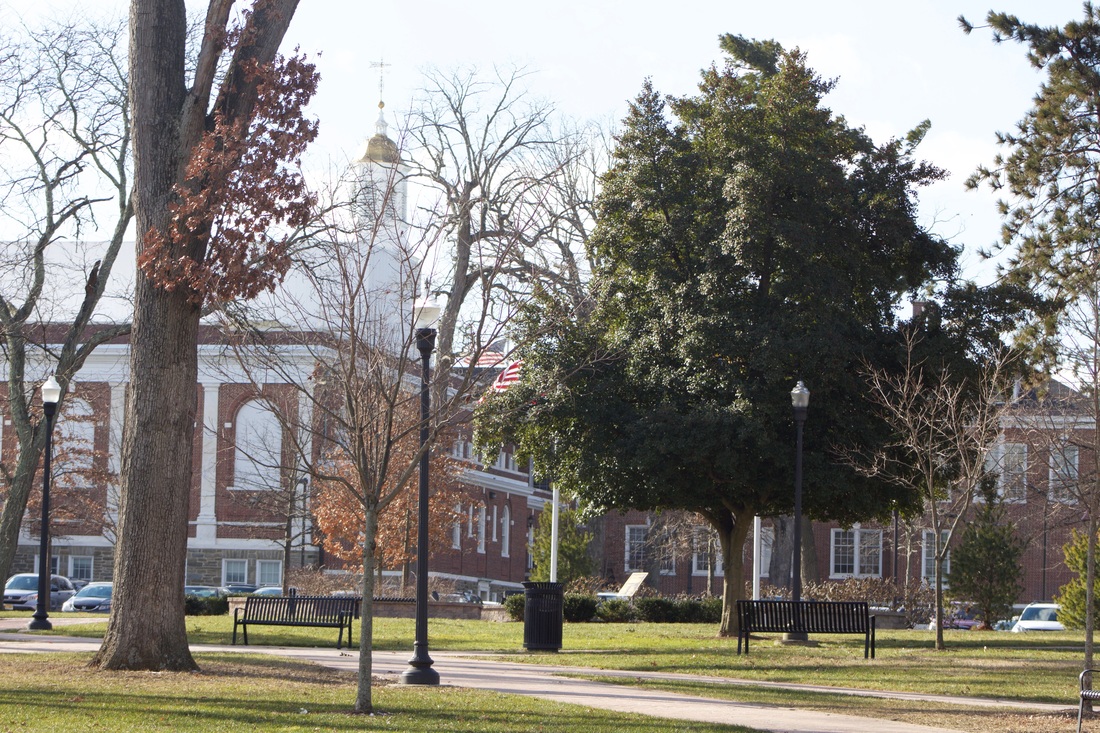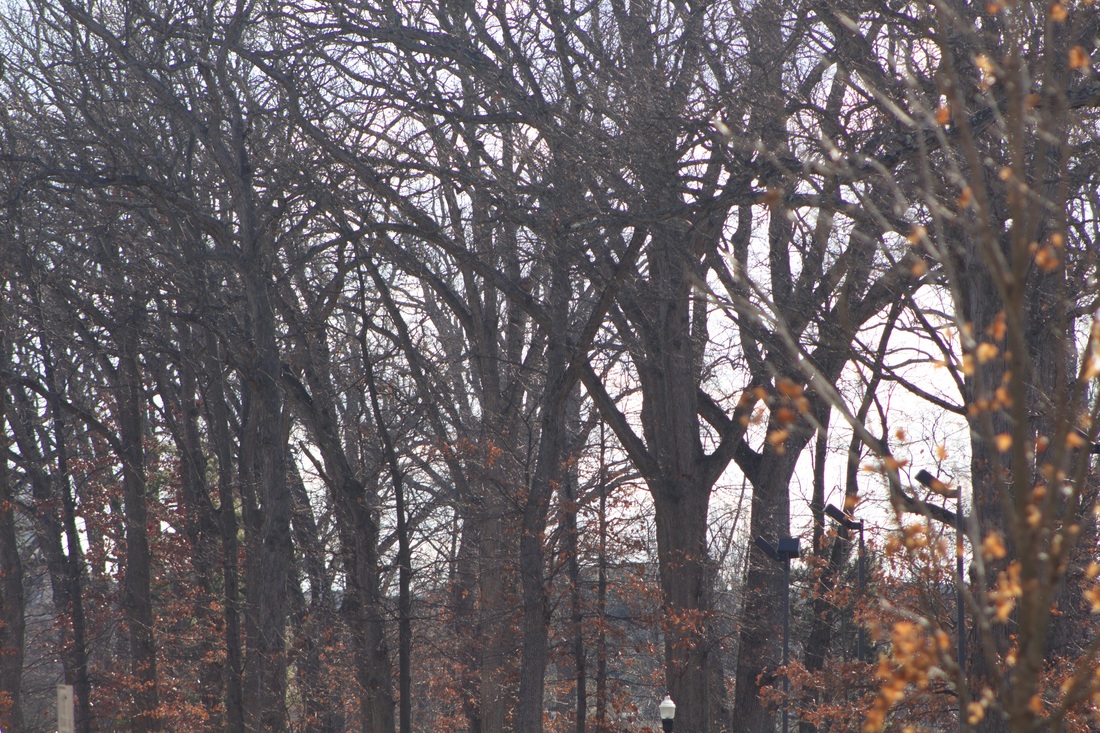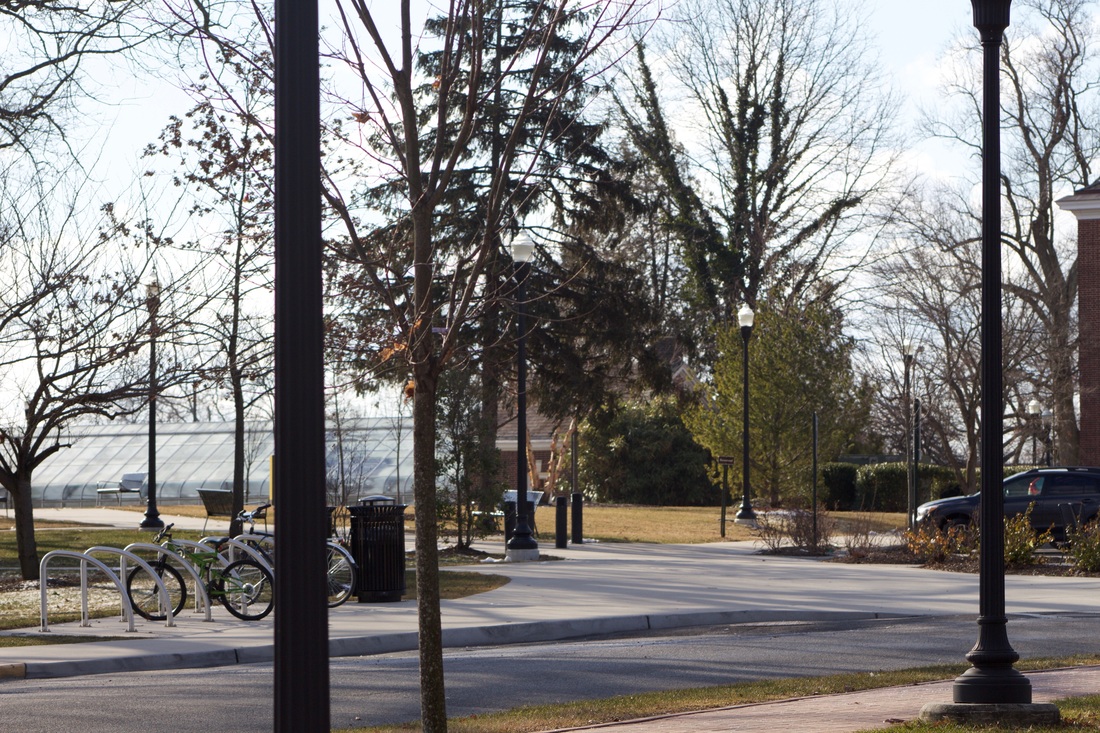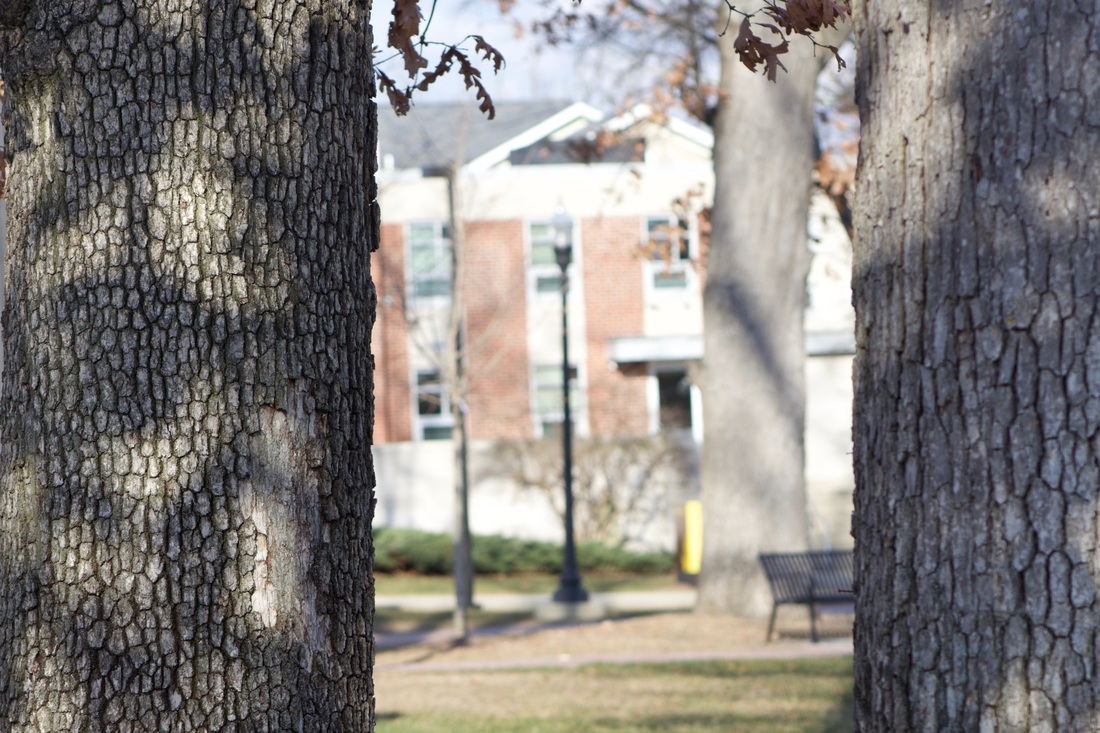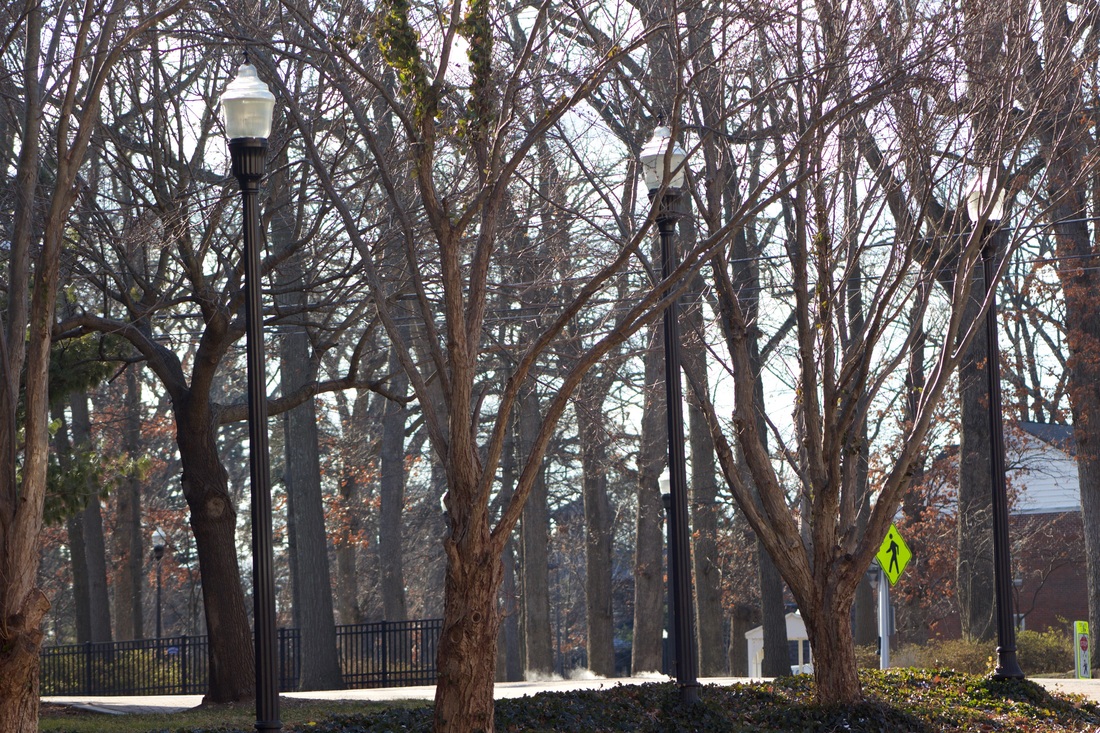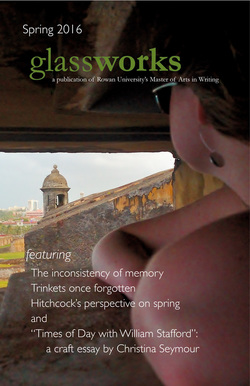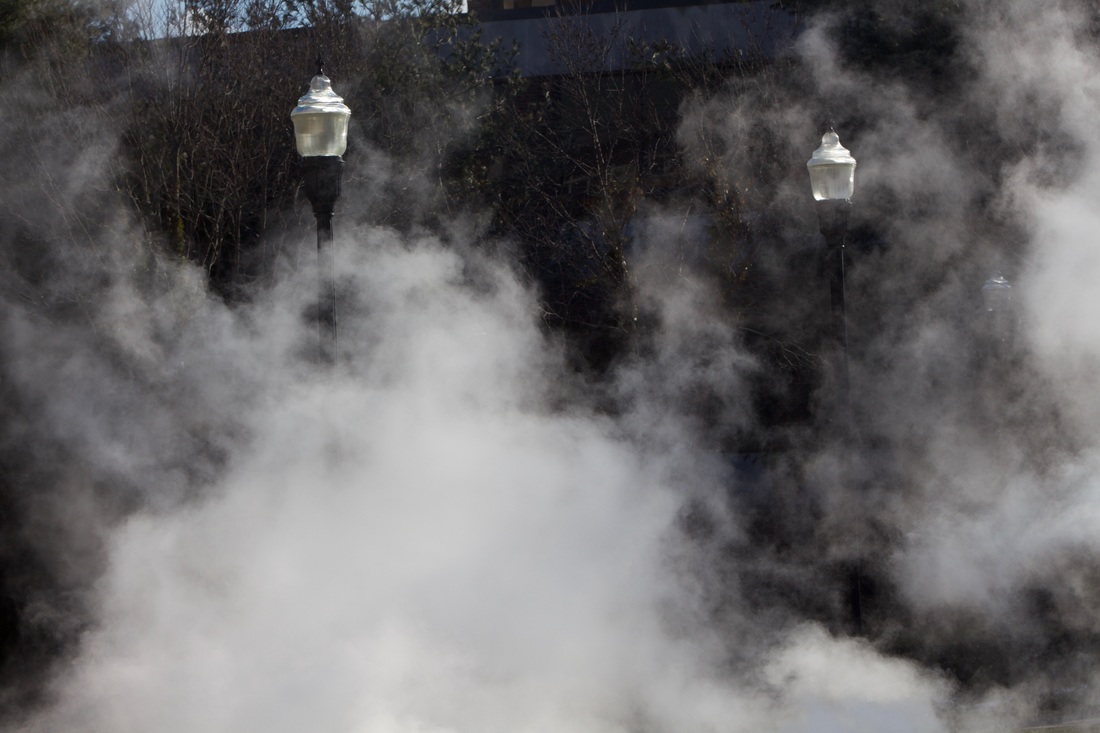The Writer's Insider
|
Vol. 1, Issue 3
|
Spring 2016
|
NEW OPPORTUNITIES: THE TEACHING EXPERIENCE PROGRAM AT ROWAN UNIVERSITY
The Teaching Experience Program (TEP), a program offered by the Master of Arts in Writing, allows students to teach college composition as paid adjunct instructors while completing a Master of Arts in Writing. For more information on the program, click here. For more information about the Master of Arts in Writing, click here.
SPEAKING WITH JENNIFER COURTNEY ABOUT THE TEP WITHIN THE MASTER OF ARTS IN WRITING PROGRAM
|
Q: The Masters of Arts in Writing Program housed in Rowan University's writing department has a ton of invested faculty who not only run the show, but advise students through a difficult and rewarding program. How do you fit within the Master's program?
A: I’m Jennifer Courtney, I’m an Associate Professor in Writing Arts here at Rowan. I was the coordinator of our graduate program for four years, and then, starting in summer of 2015, I began working with our new graduate instructors participating in our newly established Teaching Experience Program. In that capacity I teach a graduate level practicum course as well as provide one-on-one mentoring. Q: Both the 4+1 and Teaching Experience programs are very beneficial to a range of students. What should these students expect in the programs and what kinds of students are faculty looking for to undergo this process? A: Many students come to the MA in Writing graduate program liking writing and being good at it, but maybe not feeling entirely sure of what they want to do with writing. The graduate program gives those students a lot of flexibility; in other words, they don’t have to pick a genre right away to specialize in or pick a faculty member to research with right away. They don’t have to already have a big project in mind when they come. Core 1 and Core 2 within the program give students a lot of room to explore. Many students in the TEP have a solid idea of wanting to teach writing on some level at some point in the future, whether it be at community college, four-year college or maybe even beyond that. For those students, what they can get out of our programs and specifically the TEP is very early and relevant real world teaching experience that is supported and aligned with a well-established curriculum. We don’t just toss anyone a textbook and say, “See you in May!” Students get a lot of attention and mentoring. That’s something we’re proud of and looking to increase. Q: What kinds of students do you see enter the Teaching Experience programs? Is the TEP required for all 4 + 1 students? A: The TEP and 4+1 programs are not required for all graduate students. Those who are interested apply and then are interviewed and selected to work as a graduate instructor teaching in the First Year Writing Program (FYWP). As a member of the program they are required to take two classes (one in fall, one in spring) that support teaching. The first class is all about “What do you do when you go into the classroom? How do you teach students to create a thesis statement?” The second class (Issues in Composition) is much more about writing theory. On a practical level, they get to teach in the first year writing program and take classes that support it. They are also paid a salary, which essentially covers the cost of graduate tuition. For many students, depending on how quickly they go through the program or how many classes they decide to teach, it can be a wise financial decision. They can do it for one year (starting in the second year) or begin from the get-go, and depending on how long they teach in the program it’s renewable. |
|
"Overall, one of the best things is having an interest in working with people, having an interest in learning about their writing and being willing to explore whatever things your students are interested in."
|
Q: How soon can students finish the MA while engaging in the TEP? What timeline can students expect to see?
A: Most students probably can finish the MA and spend 2-3 years in the TEP. Because students are required to take those 2 classes, it does mean there are 2 fewer program electives, so for some students who want a lot of flexibility that’s something to keep in mind, because the scheduling is more regimented that way. In addition to being a graduate instructor, you get to be independently responsible for your class just like any other professor, evaluating students, which lends to real world teaching experience. Along with that, you get a lot of support with many peers who are going through the same thing, struggling and having the same questions, and you become part of a very strong community of instructors. Many professors in the first year writing program are very happy to help students in the TEP, so it’s a good and fast introduction to teaching at the college level. Q: What advice would you give to someone who’s interested in applying? A: Be honest with yourself about how much time you want to dedicate to it and what you want your final outcome to be. Any new instructor vastly underestimates the amount of time it takes to teach, and it’s not as easy to breeze through the MA program in 2 years while doing the TEP and a full course load, because it’s very different from being busy and accomplished at the undergraduate level. Time management is very important. The program provides a great time to develop next skills, a great time to realize potential you didn’t know you had. The best thing is to just talk really carefully and a lot with the people who are in the program to get the feel if it’s a good fit for you. Q: What are some qualities of students who are successful in the program? A: Being a flexible writer is important. If you’re committed to writing just one particular genre, think outside your comfort zone a little more. Someone who’s interested in lots of different genres, academic writing in particular. Some students think that once they’ve graduated from the BA program they get rid of all the “boring, stuffy” academic writing, which is not always the case. Someone who would enjoy the program is a good reader who’s willing to rethink all their assumptions about writing. Willingness and curiosity are important. If you’ve already wrapped your head around the idea that writing is a process and people experience it differently, that’s helpful going in. New instructors quickly learn that their students in FYWP are very different writers than they are, so it’s important to keep an open mind. Overall, one of the best things is having an interest in working with people, having an interest in learning about their writing and being willing to explore whatever things your students are interested in. Q: What advice would you give someone who’s evaluating if the program is right for them? A: If you’re a strong student, you’re interested in writing and you might want to teach someday, it’s a fantastic opportunity. Even if you decide teaching isn’t for you, you’ll have gained so many different skills from leading your own classroom that you’ll be able to apply them in all kinds of other contexts. Working with groups of people, managing groups of people, getting skills with technology even if it’s just Blackboard you learn to design materials and deliver them to an audience. You’re always creating things that are informational or instructive, tailored to your audience, and you can go into all sorts of other business or training contexts with the same mentality. A lot of what you do is help people grow and progress and in any environment, the more you can support people in their interests and you’re always thinking about other people in those terms. Lots of people come in shy or not liking public speaking, but come out feeling much more confident in their ability to talk with other people. You’re always standing in front of people for an hour and fifteen minutes. Skills from that alone, presentation and poise and how to think on your feet, all of those things you can really get equipped with from teaching. |
A CONVERSATION WITH TEACHING EXPERIENCE PROGRAM INSTRUCTOR KAREN TELLER
|
Q: Can you tell me a little bit about yourself?
A: My name is Karen Teller. I currently work full time at Rowan University. I am also a student in the Master of Arts in Writing program, as well as an instructor in the Teaching Experience Program (TEP). Q: What fueled your interest in the Teaching Experience Program? How did you become involved? A: When I started working for my master’s degree, my ultimate goal was to teach. I didn’t want to teach at the K-12 level; I wanted to teach at the college level. I had been working at Rowan for five or six years by the point I heard about the program, and really enjoyed the environment. I felt that being able to teach would show me the experiences of faculty members at the university. They make everything look easy, but to have the experience in the TEP helped me confirm that ultimately I wanted to teach. When I started the master’s in writing program, that was the direction I was headed toward. I actually went to meet with my advisor Ron Block to talk about my progression in the program, I had no idea about the TEP. During the meeting he asked me if I wanted to talk about the master’s program or the TEP, which I didn’t know about. He explained the program to me, as well as what I would be doing, how I would take practicum to learn to teach the class. I knew I had to do it, especially since my goal was eventually to teach. To be able to go through the program and have three years of teaching experience as well as my master’s set me on the right track. Q: One of the most unique opportunities the TEP affords is the capacity for growth. What is one thing you've learned through the program so far? A: I had no idea how hard it was. So much planning goes into every day of teaching. I usually spend upwards of three or more hours planning a one-hour, fifteen minute class. It’s a lot of work, but very rewarding. In my first week of teaching, I was nervous, wondering how I would get through each day and how students would perceive me. Now, I just love it. It was even better than expected, especially since learning that students responded to activities. During my second semester of teaching, I found that my first semester class and second semester class are different, can be taught differently. It’s been eye opening to know not only how much work goes into running classes, but how rewarding, if also difficult, it is to know how to read each student. Q: What’s an experience or piece of wisdom that helped you, coming into the program? A: I’ve gone through things in my life that taught me there’s no one solution to every problem. Everyone has a different solution. I think I’ve learned it again every time it’s applied to a different situation. I wish I’d had some time in the Writing Center before I started teaching in the program. So I would’ve liked to have had that, but I think that having the experience of visiting helps a lot before going into the experience. Q: How do you incorporate your personal experience in the classroom? Is that something you do as an instructor? A: I try, if I can. I’ll talk about something that I’ve written, something that I wrote the first time and absolutely loved; yet it still needed to be revised. We tend to fall in love with our first draft, which can make it difficult to revise from there. When you’re writing something very personal, such as the project we’re doing in my class now, the writing process itself becomes personal. It’s hard to cut sections, or add things. I try to teach from experience, referencing examples of times I’ve had to edit my personal work too. It doesn’t always flow easily but it helps students to relate to say, “Oh, she does this, too,” which can make the lesson more accessible. "No matter how much preparation you have, you have to learn to think on your feet, realize that it’s something you are actually doing. It’s a matter of saying: Yes, I am doing this. This is me. I’m responsible." |
|
Q: What a goal you have for teaching?
A: Students come in saying, “I’m don’t write well. I’m not good at writing.” I would love to be able to foster some sort of, “This is actually fun, I’m expressing myself, this is interesting, I can make it interesting.” But it’s hard, because that boundary of “I don’t know well” is really hard to move past. It’s ingrained in so many students. So, one of the things I did last semester was encourage students to create a mock essay about anything anyone wanted to write about, even something totally made up, and then create fake, but accurate, citations to accompany the piece. The students had fun because the experience was creative and engaging rather than a burden. They didn’t have to use the sources, they just made whatever they wanted. I’d love to use more of that creative writing aspect into my teaching, to give students a glimpse of how writing can be fun.
Q: How did the community of other TEP instructors help you with your own work?
A: The TEP is especially brilliant in this aspect! I don’t know how much I’ve ever missed a class as much as I miss practicum, which helped teach us how to lead a classroom. It was a group of 7 of us and an instructor. We started in the summer, and it mirrored our teaching throughout the semester. Whatever we learned in practicum the first week, we taught in class the second week, and so on. The support system, with Professor Courtney who mentored us throughout the whole thing, was so valuable. Mentoring through the program is so valuable. All the TEP instructors are now taking issues in composition theory, and we’ve started organically meeting an hour before class to share ideas about the semester and other patterns. Practicum was wonderful. It was a lot of work, but it was good. We read things from theorists. They also had a very practical application to most things we read, even giving us activities that could be used in the classroom. The information was very applicable.
Q: How did your ideas about teaching change through the program? Or the ways that you expressed or developed your teaching style?
A: Another thing we did in practicum was teaching reflections every week. Every week we reflected back on what went well, what didn’t. I have a whole teaching journal for practicum now, so every week is documented and planned. It helps me remember how everything went and how everyone responded to things. I was talking about thesis statements, and each student had a paper in hand. Organically, we wrote thesis statements up on the board and we workshopped through it. Sometimes it’s not really them or me, but we come together and say, “Oh, this is what we need.” For our third project last semester something similar happened. We were in the computer lab looking up sources for a paper. Students found sources and I wound up talking to each one of them asking what their paper would be about, how it would work for them. I’ve taken over time an approach that not everything works for every class, but in both last semester and this semester I’ve learned how to do some individual work as well as classwork, to try to find students where they are rather than trying to address an entire class.
Q: What would tell yourself before you started the program?
A: I would be happy to go back and tell myself to do more research, to research activities and overprepare for classes. But I don’t know what can prepare you for being thrown into a classroom and figuring it out. No matter how much preparation you have, you have to learn to think on your feet, realize that it’s something you are actually doing. It’s a matter of saying: Yes, I am doing this. This is me. I’m responsible. I’m the one who has to make a lesson plan. Composition classes can be foundations for learning but also for life. To try to instill a sense of “writing’s not scary, writing’s not hard”, it’s a matter of taking your ideas and putting them down on paper.
A: Students come in saying, “I’m don’t write well. I’m not good at writing.” I would love to be able to foster some sort of, “This is actually fun, I’m expressing myself, this is interesting, I can make it interesting.” But it’s hard, because that boundary of “I don’t know well” is really hard to move past. It’s ingrained in so many students. So, one of the things I did last semester was encourage students to create a mock essay about anything anyone wanted to write about, even something totally made up, and then create fake, but accurate, citations to accompany the piece. The students had fun because the experience was creative and engaging rather than a burden. They didn’t have to use the sources, they just made whatever they wanted. I’d love to use more of that creative writing aspect into my teaching, to give students a glimpse of how writing can be fun.
Q: How did the community of other TEP instructors help you with your own work?
A: The TEP is especially brilliant in this aspect! I don’t know how much I’ve ever missed a class as much as I miss practicum, which helped teach us how to lead a classroom. It was a group of 7 of us and an instructor. We started in the summer, and it mirrored our teaching throughout the semester. Whatever we learned in practicum the first week, we taught in class the second week, and so on. The support system, with Professor Courtney who mentored us throughout the whole thing, was so valuable. Mentoring through the program is so valuable. All the TEP instructors are now taking issues in composition theory, and we’ve started organically meeting an hour before class to share ideas about the semester and other patterns. Practicum was wonderful. It was a lot of work, but it was good. We read things from theorists. They also had a very practical application to most things we read, even giving us activities that could be used in the classroom. The information was very applicable.
Q: How did your ideas about teaching change through the program? Or the ways that you expressed or developed your teaching style?
A: Another thing we did in practicum was teaching reflections every week. Every week we reflected back on what went well, what didn’t. I have a whole teaching journal for practicum now, so every week is documented and planned. It helps me remember how everything went and how everyone responded to things. I was talking about thesis statements, and each student had a paper in hand. Organically, we wrote thesis statements up on the board and we workshopped through it. Sometimes it’s not really them or me, but we come together and say, “Oh, this is what we need.” For our third project last semester something similar happened. We were in the computer lab looking up sources for a paper. Students found sources and I wound up talking to each one of them asking what their paper would be about, how it would work for them. I’ve taken over time an approach that not everything works for every class, but in both last semester and this semester I’ve learned how to do some individual work as well as classwork, to try to find students where they are rather than trying to address an entire class.
Q: What would tell yourself before you started the program?
A: I would be happy to go back and tell myself to do more research, to research activities and overprepare for classes. But I don’t know what can prepare you for being thrown into a classroom and figuring it out. No matter how much preparation you have, you have to learn to think on your feet, realize that it’s something you are actually doing. It’s a matter of saying: Yes, I am doing this. This is me. I’m responsible. I’m the one who has to make a lesson plan. Composition classes can be foundations for learning but also for life. To try to instill a sense of “writing’s not scary, writing’s not hard”, it’s a matter of taking your ideas and putting them down on paper.
MEETING WITH CATE HARPOOL, AN INSTRUCTOR IN THE TEACHING EXPERIENCE PROGRAM
|
Q: What are your goals, joining the program?
A: I want to teach high school English. High school English classes are at least as much about writing as they are about reading. We don’t really talk about writing in the English department. We read a lot. Learning is fun and rewarding, and it might not feel like the kind of fun students are used to, but it’s the kind of fun they can get more out of. I want people to get on board with how much more they can get out of everything they do if they pay attention to it. Q: What’s something you’ve learned through the program? A: As a member of the program I’ve put a lot of pressure on myself. But I’ve learned that as long as you’re there facilitating the writing process for the students, they learn at least as much from themselves and each other just by doing it. Q: How did your understanding of teaching change over the course of your time in the program? A: I was super scared about being in front of the students and something embarrassing happening to me. I realized they wouldn’t get up and throw their pencils at me and leave. They just bought I was in charge because of the position, because I was at the front of the room. So I’ve tried to upset that a bit by not being at the front of the room so much anymore, giving them the opportunity to be up front or I join them in the middle of the room. I really want them to recognize and take on autonomy for their learning. |
"Learning is fun and rewarding, and it might not feel like the kind of fun students are used to, but it’s the kind of fun they can get more out of."
Q: How do you feel your style of teaching has changed?
A: I thought I had to be formal and strict and authoritative at the very beginning. But now I’m always looking for ways to be more casual and less intimidating and less of an authority.
Q: What are some important things to know about the content of the program?
A: We take a class called Teaching Practicum. There’s not a ton of theoretical stuff right away, there’s a very little bit of it inevitably mixed in with the practical advice, but the practical advice is definitely practical. About how many comments to leave on a student paper, leaving the door open when there’s a student in the office; what went well, what you would do differently next time, what was a good experience and an experience that did not go the way you wish it did. We’ve also done things like teaching demonstrations, so you take part of one of the lessons you taught in your classroom and teach it to the TEP practicum class.
A: I thought I had to be formal and strict and authoritative at the very beginning. But now I’m always looking for ways to be more casual and less intimidating and less of an authority.
Q: What are some important things to know about the content of the program?
A: We take a class called Teaching Practicum. There’s not a ton of theoretical stuff right away, there’s a very little bit of it inevitably mixed in with the practical advice, but the practical advice is definitely practical. About how many comments to leave on a student paper, leaving the door open when there’s a student in the office; what went well, what you would do differently next time, what was a good experience and an experience that did not go the way you wish it did. We’ve also done things like teaching demonstrations, so you take part of one of the lessons you taught in your classroom and teach it to the TEP practicum class.
Social Justice Through The Power of LanguAge
|
|
On Wednesday January 26, The Women's Center, The Rowan Art Gallery and our friends of Lyrical Alliance produced a coffee house style event called Patchwork: Stitching Together Women's Identities. The title alone is evocative enough to encourage the recognition of hegemony and the importance of dismantling the patriarchy. But it was the amazing speakers and performers that really sold us.
During the event, women shared their stories and experiences as women on Rowan's campus. There were limitless discussion on everyday feminism, what it means to be a feminist, and the intersectional feminist perspective. These gave wind to women's issues, support and resources, and an emphasis on community discourse and action. |
|
Featured discussions included those of situation, visibility and location as determents of "otherness." As a whole, the body of attendees agreed that being fearless and supportive through discourse, text and academia was the next and continuing move to a greater life of equality.
In addition to this event, Rowan University's Men's Action Network issued a round table discussion/talk titled RU-Man. The goal of this event was to bring about an understanding from the students of sexual and physical violence as it pertains to the safety of self and the safety of women and others. The process of understanding via consensus of the mass was fueled by the sharing of men's experiences and stories of their masculinities as it relates to the world. This brought discussion of portrayals of man and woman in media, cinema, laws and past understandings in our histories. Members talked of power differentials, privilege and what it means to be living in a system of oppression. The ultimate goal was to generate plans of action every member of the discussion could take in order to disrupt and prevent the ills of the world Similar meetings will be held biweekly in room 118 Robinson Hall. |
Claudia Rankine And The President's Lecture Series
|
|
Claudia Rankine is a New York Times bestselling poet and National Book Award finalist and author of five collections of poetry, two plays and editor of several anthologies.
Thursday, Feb. 11, Rankine spoke as a part of the President’s Lecture Series. She read from her works in the Eynon Ballroom of the Chamberlain Student Center. Works included poetry, essays, visual images and cultural criticisms, all used to engage in an exploration of what it means to be an African-American citizen today. The reading was followed by a book signing and question and answer discussion in which the public and our Writing Arts majors discussed writing processes, inspirations, and the power of language in today's world. |
WRITING ARTS CLUB
|
Our Mission
Our mission is to promote assessment of the academic achievements Writing Arts students gather, and put our learning to work outside the classroom, as we further develop personal and professional growth. With a focus on collaboration to produce works across the mediums and disciplines, our goal is to assist and be assisted in our practices of rhetorical, creative, technical and modern writing so we may develop a range of skills to be applied in our professional lives. About Us The Writing Arts club welcomes all undergraduate and graduate level Writing Arts students who are interested in collaborative, project based opportunities. We run an online publication and e-newsletter for Writing Arts students to become more visible. We offer student run seminar opportunities for individuals interested in discussions on writing practices and theories and the use of writing technologies. We also offer workshop opportunities for those seeking peer review and genuine feedback. Join the Writing Arts club for community and opportunity! |
Who We Are
The Writing Arts club is comprised of Rowan University Writing Arts Undergraduate and Graduate students. Our interests range from creative to technical writing, new media to print publication, and all creations of artful composition. Our staff is dedicated to creating a community of writers who want to make student writing visible. All Writing Arts majors are welcome and are considered members of the club as soon as they walk through the door. Our staff is excited to offer students opportunities for publication, professional development and collaboration amongst a community of hard working writers. For more information, visit our new website here! |
GLASSWORKS: SPRING 2016, ISSUE 12 NOW AVAILABLE
|
Issue 11 features: poetry by Jamie Anastas, Bruce Bagnell, Evan Bauer, Kevin Casey, Paulette Guerin, Alison Hicks, Paul Lojeski, Megan Merchant, and Elizabeth Vignali; fiction by Claire Day, Stuart Freyer, and Joshua Osto; creative nonfiction by H.R. Green, Paul Hostovsky, and Will Preston; artwork by Thomas Gillaspy, Janelle Rainer, and C.F. Sanchez; and a craft essay by Christina Seymour featuring poetry by William Stafford.
For more information about Glassworks, an official publication of Rowan's Master of Arts in Writing program, visit the official website. |
fall 2016 COURSE SELECTION |
|
Don't forget to meet with your advisor for Fall 2017 course selection. Courses that fulfill Writing Arts major and department requirements include: Required Courses Courses for Elements of Language Courses for New Media Writing & Publishing Courses for Creative Writing Courses for Technical & Professional Writing For advising sheets, click here. You can find a catalogue of Master of Arts in Writing courses on our new website here. |
The Writer's Insider is a publication that works to inform and to inspire the community of writers at Rowan University. As illustrated by its title, The Writer's Insider seeks to instill a sense of being "inside" the community, as all writers are welcome to join in the tradition of creativity here at Rowan University.
